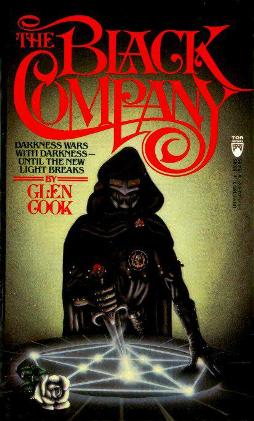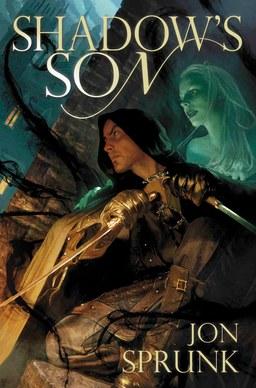Heroes and Antiheroes

We’re all familiar with heroes. They claim the central role in most fantasy stories. They are, well, heroic — usually noble, brave, and good. They are often the kind of people we wish we could be in real life. Superman, Wonder Woman, and Captain America are iconic heroes. So is Luke Skywalker. The good guys.
Antiheroes are also the leading characters in their stories, but they lack some (or all) of those traditional heroic traits. They have flawed personalities. The new Dark Knight and Wolverine are comic book antiheroes. In Star Wars, Han Solo is the antihero, always looking out for himself (until he finds love and changes his ways).
In fantasy, we have been treated to a plethora of both kinds of heroes. For every Conan, there is an Elric of Melnibone. For every Rand al’thor, there is a Thomas Covenant. Heck, The Black Company by Glen Cook features antiheroes almost exclusively.
When I begin preparing to write a new book, one of the first things I do is decide who my main character will be. In that process, I work out whether I’m going to feature a hero or an antihero. And it’s a big decision. Massive, in fact, because it affects every other aspect of the story.
The main character in Shadow’s Son is an assassin. I gave him some heroic traits—physical courage and stamina — but he’s not a nice guy. Instead of brooding about his life as a professional killer, he accepts it. As a result, we see more of the underbelly of society in that series, from Caim’s perspective.
Whereas if I had chosen an idealistic young knight or captain of the guard as the main character, the entire series would have been portrayed in a different light. Indeed, in the later books I use just such a character (Josephine) as a counter-balance to Caim’s story.
So which is better, the hero or antihero?
 Well, neither is intrinsically better. Some characters fit certain stories better, such as my example of Caim the Assassin above. But sometimes people like to announce to the world that one type of hero is passé. Over the hill and no longer relevant.
Well, neither is intrinsically better. Some characters fit certain stories better, such as my example of Caim the Assassin above. But sometimes people like to announce to the world that one type of hero is passé. Over the hill and no longer relevant.
But the pendulum always swings back around. When I was growing up in the 70s and 80s, heroes were slowly being phased out in favor of antiheroes, who seemed more “realistic” and cooler. Nobility of character was going out of style. Fast-forward twenty years and the trend was reversing as people got tired of all the angsty, “gritty” antiheroes and wanted to go back to reading about the “good guys” again.
Personally, I enjoy working with both types of heroes, but then again I’ve always painted in various shades of gray. Every hero I find interesting has a fatal flaw, and likewise every antihero must have a saving grace in their personality.
All of my heroes carry personal demons and all my antiheroes are seeking some kind of redemption (even if they don’t know it). It’s the interaction of those conflicting elements that excites me.
But everyone has different tastes. There’s nothing wrong with preferring uber-noble heroes, who always make the right choice, or antiheroes who never lift themselves out of their condition. We’re fortunate to live in a time with so much great fantasy lit that offers us almost unlimited options.
My only advice is this: don’t be afraid to wander outside your comfortable “hero pallet” and sample something else once in a while. Variety is the spice.
Jon Sprunk is the author of the fantasy epic Blood and Iron as well as the Shadow Saga trilogy (Shadow’s Son, Shadow’s Lure, and Shadow’s Master). He’s also a mentor at the Seton Hill University fiction writing program. For more on his life and writing, check out www.jonsprunk.com.